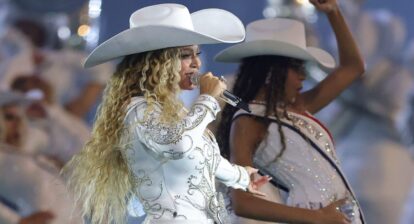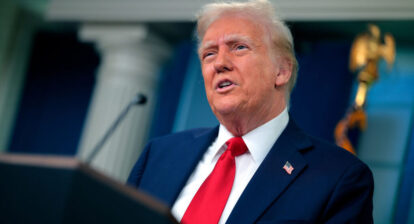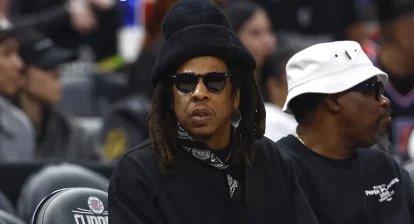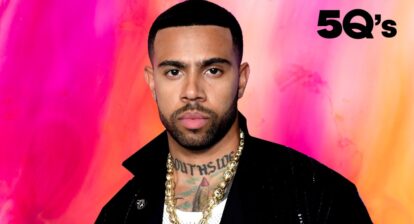
Trump’s executive orders have spurred more than 130 lawsuits in the few months he has been in office, but this one barely generated a peep.
After TikTok was banned in the United States earlier this year, President Donald Trump gave the platform a reprieve, barreling past a law that was passed in Congress and upheld unanimously by the Supreme Court that said the ban was necessary for national security.
The Republican president’s executive orders have spurred more than 130 lawsuits in the little more than two months he has been in office, but this one barely generated a peep. None of those suits challenges his temporary block of the 2024 law that banned the popular social video app after the deadline passed for it to be sold by ByteDance, its China-based parent company.
Few of the 431 members of the House of Representatives and the Senate who voted for the law have complained.
Despite a bipartisan consensus about the risk to national security posed by TikTok’s ties to China, “it’s as if nothing ever happened,” said Sarah Kreps, director of Cornell University’s Tech Policy Institute.
TikTok has stayed online, delighting 170 million users in the U.S.
TikTok continues to function, much to the delight of its 170 million users in the U.S., and the tech giants Apple, Google and Oracle have been persuaded to continue to offer and support the app, on the promise that Trump’s Justice Department would not use the law to seek potentially steep fines against them.
Trump declared he was suspending the law for 75 days, though no provision of the rule would appear to allow for that, to give ByteDance a fresh chance to find a U.S. buyer. The president has suggested he could extend the pause, but he has since said he expects a deal by Saturday, when the reprieve expires. He is meeting Wednesday with aides about possible suitors for TikTok. Oracle and the investment firm Blackstone are among the potential investors.
Trump’s action followed a fast-tracked free-speech challenge by TikTok and its users that ended with a unanimous Supreme Court ruling days before Trump’s inauguration, in which the justices held that national security concerns overcame their usual receptivity to First Amendment claims.
The court’s opinions dealt at length with the potential for China to harvest vast quantities of TikTok users’ data that could allow it to track the locations of federal employees and contractors.
“The record before us establishes that TikTok mines data both from TikTok users and about millions of others who do not consent to share their information,” Justice Neil Gorsuch wrote in a brief separate opinion. “According to the Federal Bureau of Investigation, TikTok can access ‘any data’ stored in a consenting user’s ‘contact list’ — including names, photos, and other personal information about unconsenting third parties.”
TikTok, which has headquarters in Singapore and Los Angeles, has said it prioritizes user safety, and China’s Foreign Ministry has said China’s government has never and will not ask companies to “collect or provide data, information or intelligence” held in foreign countries.
Trump was against TikTok before he was for it
The day after the ruling, TikTok went dark for U.S. users, but it came back online after Trump vowed to stall the ban.
The president’s position has evolved over time. During his first term, he used an executive order to try to ban TikTok on national security grounds. But federal courts blocked it. His administration then tried to negotiate a sale of the platform, but it failed.
Trump changed his tune during his 2024 campaign and said he would “save TikTok,” then credited the platform with helping him win more young voters. He issued the 75-day pause on the first day of his second term.
The law allows for one 90-day reprieve, but only if there’s a deal on the table and a formal notification to Congress.
Trump’s actions so far violate the law, said Alan Rozenshtein, an associate law professor at the University of Minnesota. “The law does not permit the sort of ‘extension’ that Donald Trump has announced,” Rozenshtein said.
But both he and Kreps acknowledged a court challenge or other pushback is unlikely.
“Who’s the constituency? You have 170 million Americans using the app, and they’re pretty happy to see this continue to be available to them,” Kreps said.
It also might be hard for someone to establish the legal right, or standing, to sue, Rozenshtein said. A plaintiff would have to be able to show harm from the delay in enforcing the law, he said.
More importantly, he said, the TikTok executive order was an early “example of the Trump administration not caring about the rule of law.”
While Trump has directed the Justice Department not to seek fines from the tech companies, they still are taking a legal gamble, according to Democratic lawmakers who oppose the TikTok ban but also criticize Trump for his actions. A future administration might have its own reasons to pursue legal claims against Apple, Google and Oracle, they wrote Trump in a letter last week.
Companies could face hundreds of billions of dollars in legal liability for facilitating TikTok’s operations since the law’s effective date of Jan. 19, Democratic Sens. Cory Booker of New Jersey, Chris Van Hollen of Maryland and Ed Markey of Massachusetts wrote.
Tech companies initially lacked clear guidance
The companies themselves acknowledged their legally uncertain situation in their initial response to Trump’s order. Oracle continued to provide cloud services to TikTok, the senators said, but “Apple and Google, however, initially came to a different decision and refused to reinstate TikTok in their app stores.”
The companies changed course only after receiving written assurance from the Justice Department.
The Democrats have called for amending the law to extend the deadline for a sale to October. Other opponents of the TikTok ban support a full repeal.
Among the few supporters of the ban to speak out is Rep. John Moolenaar, R-Michigan, chairman of the House Select Committee on the Chinese Communist Party.
But rather than take on Trump, Moolenaar has focused his criticism on ByteDance and its ties the Chinese Communist Party. “If ByteDance stays involved in any way, the deal is illegal — plain and simple,” Moolenaar said in remarks to a TikTok event on Capitol Hill last week.
Several potential bidders have stepped forward.
Perplexity AI presented ByteDance in January with a merger proposal that would combine Perplexity’s business with TikTok’s U.S. operations.
Another possibility is a consortium organized by billionaire businessman Frank McCourt, which recently recruited Reddit co-founder Alexis Ohanian as a strategic adviser. Investors in the consortium previously said they offered ByteDance $20 billion in cash for TikTok’s U.S. platform. They had planned to redesign the popular app with blockchain technology they said would provide users with more control over their online data.
Jesse Tinsley, the founder of the payroll firm Employer.com, had also organized a consortium, which included the CEO of the video game platform Roblox, and offered ByteDance more than $30 billion for TikTok.
!function(){var g=window;g.googletag=g.googletag||{},g.googletag.cmd=g.googletag.cmd||[],g.googletag.cmd.push(function(){g.googletag.pubads().setTargeting(“has-featured-video”,”true”)})}();





